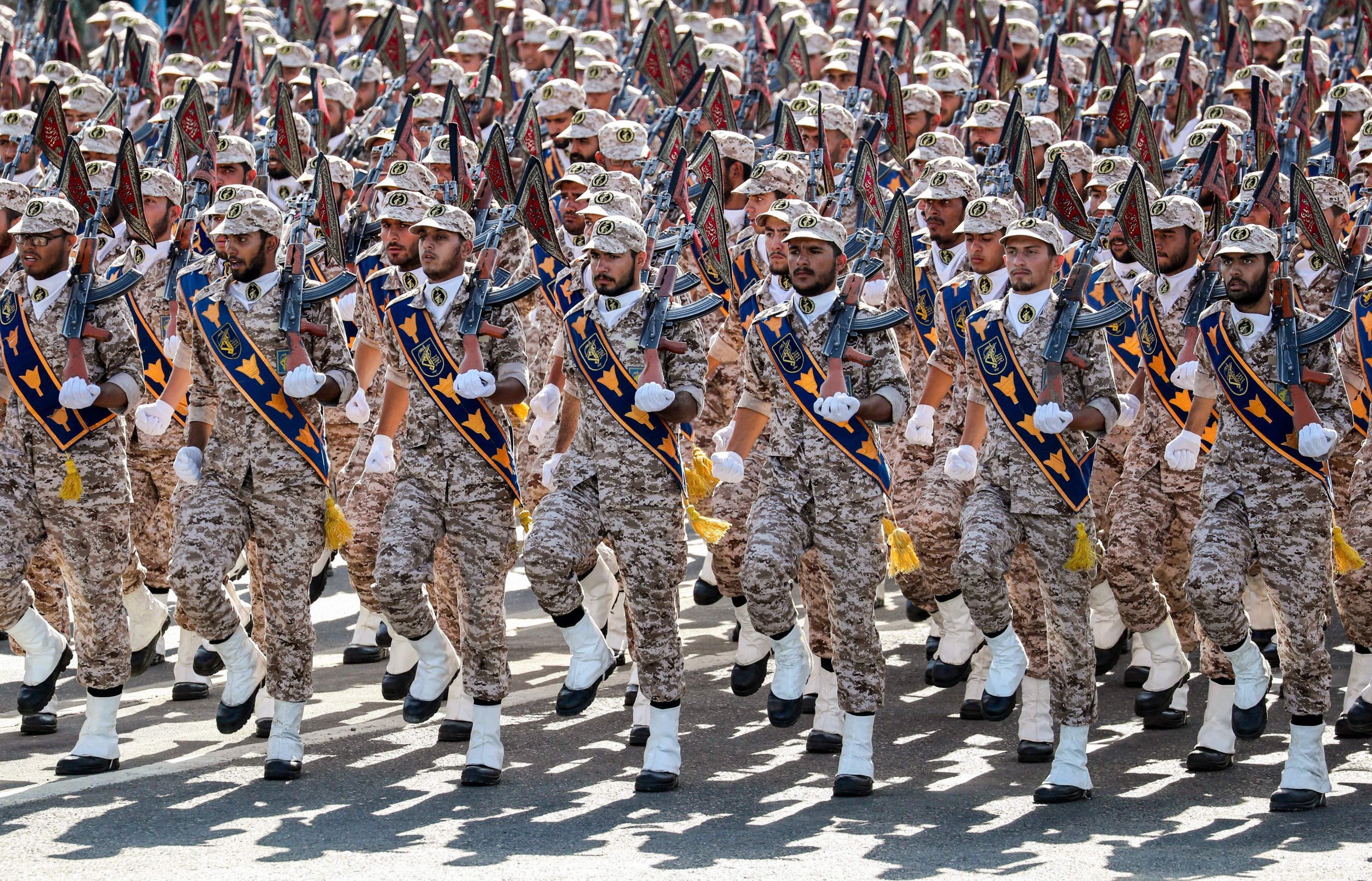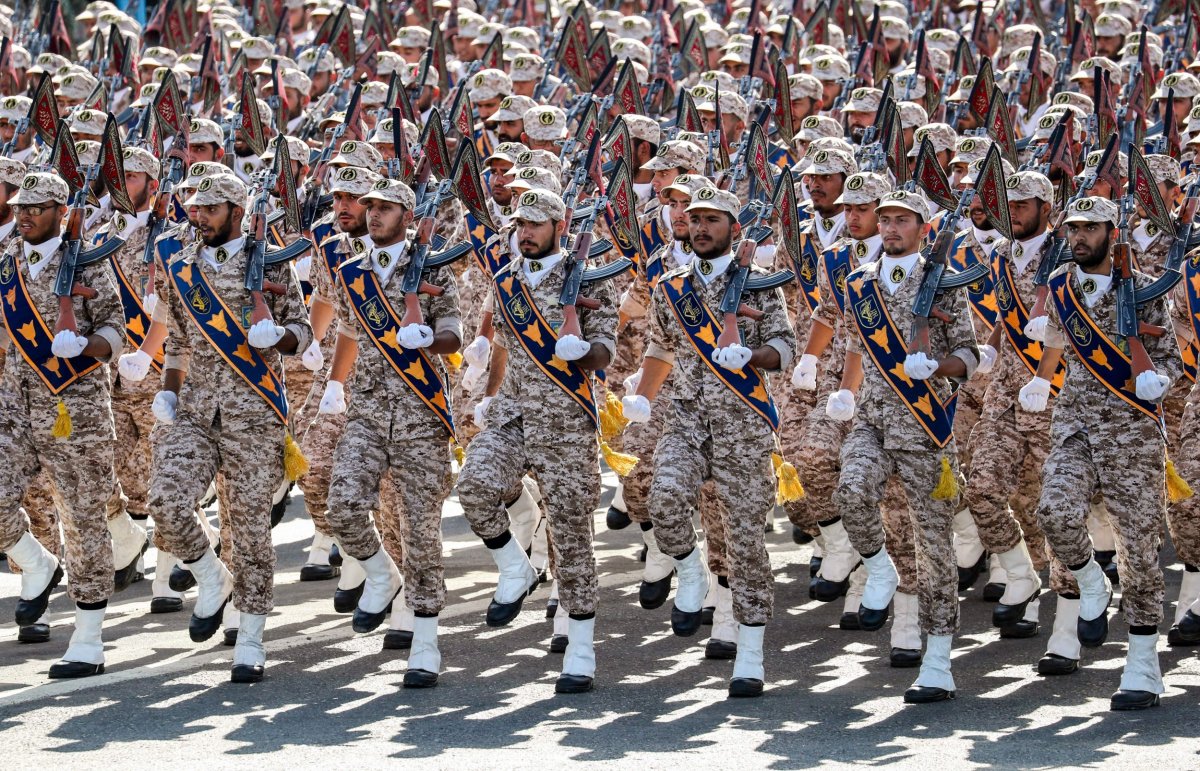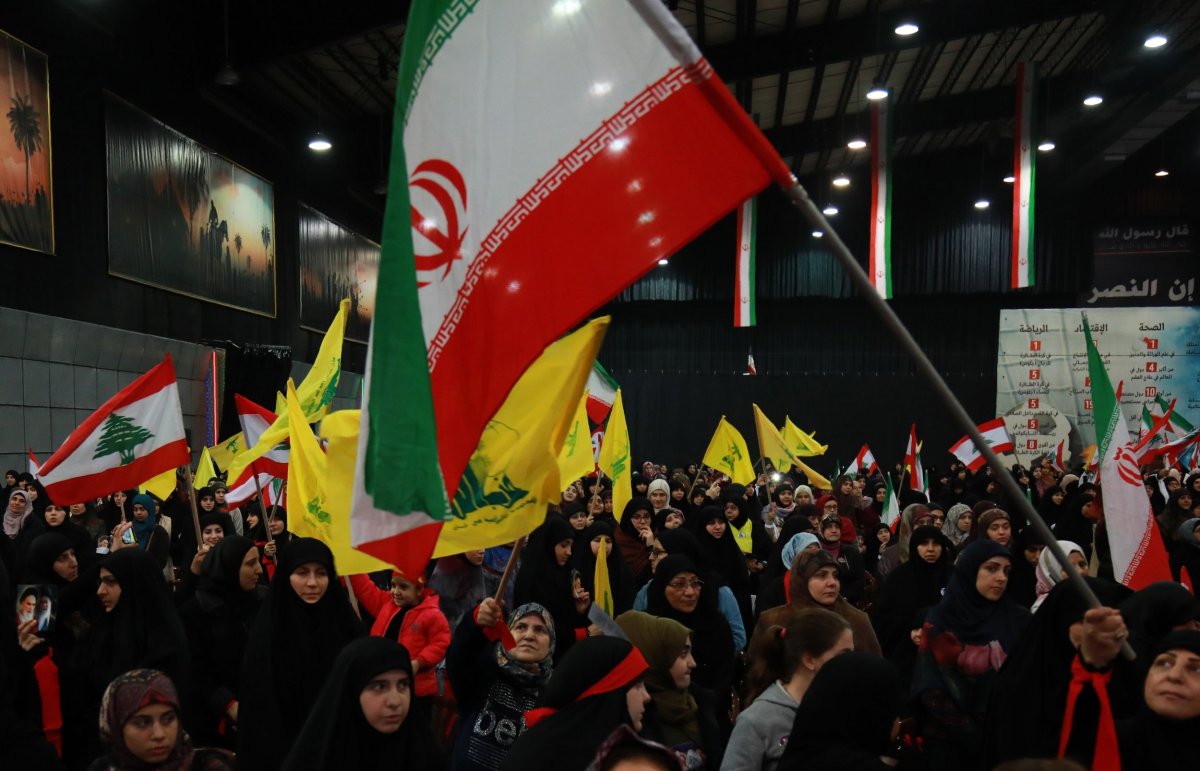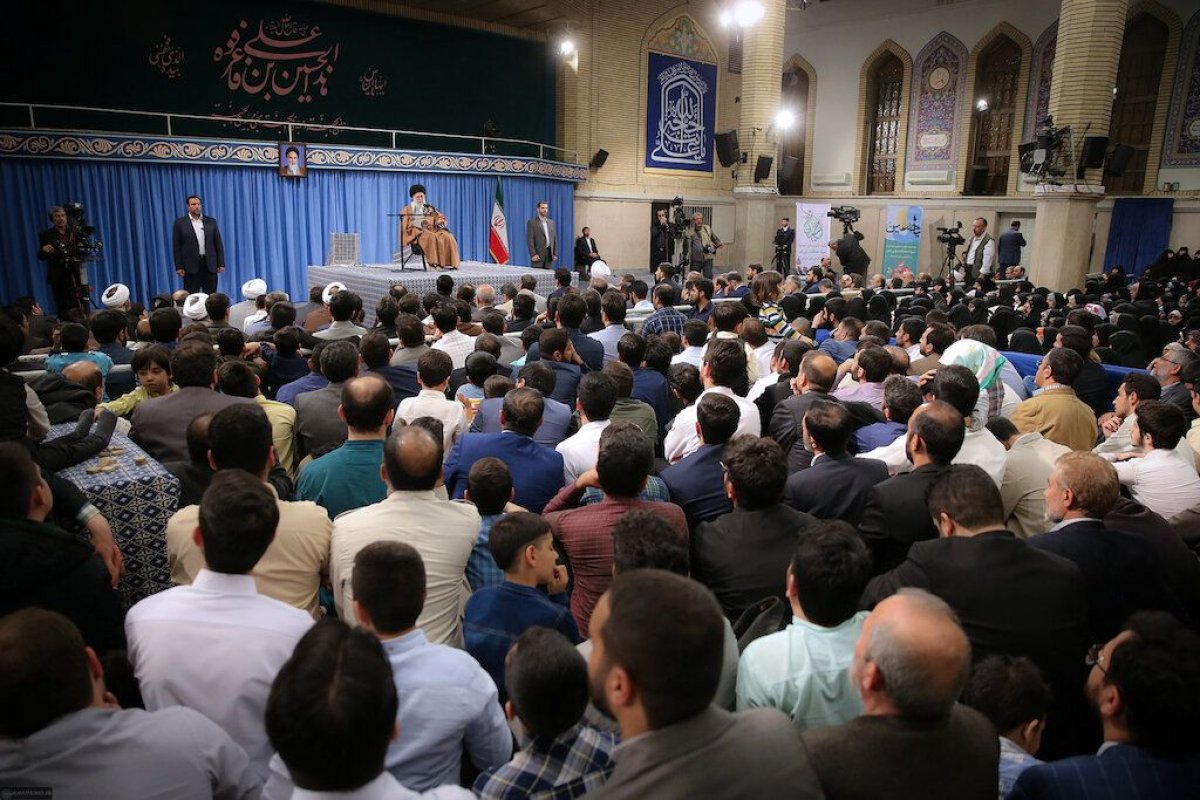
Iran and its regional allies have vowed to support its Revolutionary Guards against the United States, which has labeled the elite military branch a terrorist organization.
In a statement translated by Iran's semi-official Press TV, the general staff of the Iranian armed forces called President Donald Trump's move "unwise" and warned it "will be treating all the forces enlisted with Centcom [the U.S. central command] as terrorists."
Iran's Supreme National Security Council declared the U.S. Central Command—which oversees the Middle East and Central Asia—"terrorists" in response to the White House's move on Monday, which came after the Trump administration repeatedly accused the group, known officially as the Islamic Revolutionary Guard Corps (IRGC), of sponsoring other U.S.-designated terrorist organizations across the region.
"The General Staff will spare no effort in supporting the IRGC's counterterrorism measures in fighting the terrorist CENTCOM," the statement read.
The statement also denounced "criminal and bloodthirsty America's adventuristic actions in the region over the past several decades," as well as its support for Israel and, allegedly, the Islamic State militant group (ISIS), Al-Qaeda and other jihadi forces. The harsh words came amid a number of other high-profile moves in support of the Revolutionary Guards in recent days.

The Revolutionary Guards were formed shortly after the 1979 Islamic Revolution that toppled a CIA-reinstalled, pro-West absolute monarchy to bring the current cleric-led Shiite Muslim government to power. The group operates alongside, yet separately from, Iran's conventional military and has conducted numerous foreign operations—especially through its shadowy Quds Force—across the region and, likely, around the world.
Among the first to speak out following Trump's designation was Iranian supreme leader Ayatollah Ali Khamenei himself, who met with troops and their families.
He warned: "U.S. officials wishfully plot against the IRGC and actually against the Islamic Revolution and maneuver mischief. Undoubtedly, such ferocities won't get them anywhere. Their vice and deceit will return boomerang on them, leading the enemies of the Islamic Republic such as Trump and those around him at the U.S. ruling apparatus to go down the drain."
The following day, the Iranian military's chief of staff Major General Mohammad Hussein Bagheri warned that his forces would "consider the U.S. troops in West Asia as terrorists and if they make a mistake, we will confront them vigorously," according to Iran's semi-official Mehr News Agency. Various other senior generals also pledged their support for the Revolutionary Guards and stated their readiness to take on the U.S., as well as Israel, if commanded.
Iranian President Hassan Rouhani, the head of state who ultimately answers to Khamenei, argued Wednesday that "there has always been a close relationship between the Revolutionary Guards and the people, and the people will never forget their 40-year sacrifices." Like many Iranian political and military leaders, he highlighted the branch's extensive role in battling ISIS and other jihadi forces across Iraq and Syria in recent years.
Also meeting IRGC members was Rouhani's top diplomat, Foreign Minister Mohammad Javad Zarif, who tweeted: "Our armed forces sacrificed to defend our nation, region & the world against Saddam [Hussein] & ISIS. We'll never forget their sacrifice-nor will we allow outlaw bullies to destroy their legacy by fuelling insecurity & instability. Nor should the world."

In its own statement Wednesday, the Revolutionary Guards called the U.S. designation "illegal, unconventional and unprecedented" made by "idiots" in Washington, according to the semi-official Tasnim News Agency. The group said it would continue its mission of defending the country and its Islamic system.
Hezbollah Secretary General Hassan Nasrallah, whose Lebanese Shiite Muslim movement is also designated a terrorist organization by the State Department, called the Revolutionary Guards' classification "the height of arrogance and stupidity." Iraq's Hezbollah al-Nujaba movement called upon the international community and Arab world to "expose Trump's crimes and assume its moral and legal responsibility to stand up for rejecting this hybrid decision and to plan the creative chaos in front of the world, which will make America and its agents an unsafe haven."
The Zaidi Shiite Muslim Houthi movement, officially known as Ansar Allah, appealed to regional powers so that they may "reject such aggressive decisions, reject all destructive American and Israeli plans, and movements in Palestine, Syria, Lebanon and the rest of the countries of the region and take effective action to confront them."
Bahrain's Popular Resistance Brigades warned that "the American presence in the region is a terrorist presence and should be targeted."
Iraqi Prime Minister Adil Abdel-Mahdi said he "tried to stop the decision" to blacklist the Revolutionary Guards, while the Syrian Foreign Ministry said it was "a badge of honor and recognition of the Iranian Revolutionary Guards' leading role in defending the sovereignty of the Islamic Republic of Iran and its independent national decision-making as well as its important role in the Axis of Resistance," a self-styled alliance of Iran, Syria and allied, mostly Shiite Muslim groups.
While Israel and Saudi Arabia welcomed the move, many others such as China, Russia, Qatar and Turkey warned it could lead to regional instability. Japanese Foreign Minister Taro Kono said Tokyo "does not intend to follow such a move" and the French Foreign Ministry noted that those linked to Iran's Revolutionary Guards and missile activities were already subject to sanctions by the EU, which was trying to save the 2015 nuclear deal.

Secretary of State Mike Pompeo justified the U.S.'s first-ever designation of a foreign government entity as a terrorist organization by claiming that the "Iranian regime's use of terrorism as a tool of statecraft makes it fundamentally different from any other government." He added: "This historic step will deprive the world's leading state sponsor of terror the financial means to spread misery and death around the world."
In an interview Monday with Fox News, the top U.S. diplomat called Quds Force commander Qasem Soleimani "a terrorist" equivalent to that of ISIS leader-at-large Abu Bakr al-Baghdadi. As of Monday, Centcom's "rules of engagement have not changed as a result of this announcement" and it had "no credible information to suggest there is an imminent threat," according to Russia's state-run Sputnik News.
Trump's move was the latest in a series of hardline measures adopted by his administration against Iran, which he has accused of using sanctions relief provided by the nuclear accord to fund militant groups and developing ballistic missile technology. The White House left the deal last May and has targeted Tehran with mounting sanctions that have allegedly deprived it of $10 billion since the latest round in November.
The U.S. also recently accused Iran of being behind the deaths of some 608 U.S. troops during the Iraq War, which overthrew Washington and Tehran's mutual foe Saddam Hussein, but stirred a Sunni Muslim insurgency led first by Al-Qaeda and later by ISIS. Though the U.S. and Iran both contributed to the fight against ISIS in Iraq and Syria, they have accused one another of attempting to destabilize the region.
Uncommon Knowledge
Newsweek is committed to challenging conventional wisdom and finding connections in the search for common ground.
Newsweek is committed to challenging conventional wisdom and finding connections in the search for common ground.
About the writer
Based in his hometown of Staten Island, New York City, Tom O'Connor is an award-winning Senior Writer of Foreign Policy ... Read more
To read how Newsweek uses AI as a newsroom tool, Click here.








